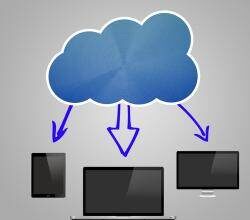 The use of cloud ERP technology and is growing. Over 50% of companies plan to increase their cloud spending over the next 12 months as reported by Forrester Research1, .
The use of cloud ERP technology and is growing. Over 50% of companies plan to increase their cloud spending over the next 12 months as reported by Forrester Research1, .
 The use of cloud ERP technology and is growing. Over 50% of companies plan to increase their cloud spending over the next 12 months as reported by Forrester Research1, .
The use of cloud ERP technology and is growing. Over 50% of companies plan to increase their cloud spending over the next 12 months as reported by Forrester Research1, .
Cloud ERP Adopters – Testimonials and Complaints
I’ve spoken with several folks who have deployed ERP systems. In a few short sound bytes, these users reveal their opinions, both good and bad. The customer names and vendor names have been omitted to protect the sources and avoid a slew of defensive rebuttals. I should be noted that these comments represent a random sampling, not merely quotes from the list of happy customers that you see on vendor websites.
 We thought that connecting to a US based cloud service would be terribly slow, but it worked quite well. The software eliminates the amount of data that is transferred, making the response time faster than we have experienced with websites that contain too many graphics and flash movies.
We thought that connecting to a US based cloud service would be terribly slow, but it worked quite well. The software eliminates the amount of data that is transferred, making the response time faster than we have experienced with websites that contain too many graphics and flash movies.
– Distributor in Africa
 The ERP software works well, but the Cloud service has slowed operations on a few occassions. I like the fact I’m not worried about IT resources, but I’m considering running the software on an internal cloud so I can eliminate occassional performance issues.
The ERP software works well, but the Cloud service has slowed operations on a few occassions. I like the fact I’m not worried about IT resources, but I’m considering running the software on an internal cloud so I can eliminate occassional performance issues.
– Manufacturer in Southern US
 Cloud ERP gives us the capability to summarize data from multiple locations to get summary reports at headquarters and still maintain the detail to see how individual franchisees are doing.
Cloud ERP gives us the capability to summarize data from multiple locations to get summary reports at headquarters and still maintain the detail to see how individual franchisees are doing.
–Franchiser in Southeast Asia
 The cloud eliminated client software so we can easily involve business partners and remote employees without the hassle of installing and maintaining software remotely. This allows us to centrally manage sales across multiple suppliers and distributors while keeping costs low.
The cloud eliminated client software so we can easily involve business partners and remote employees without the hassle of installing and maintaining software remotely. This allows us to centrally manage sales across multiple suppliers and distributors while keeping costs low.
– Online retailer in Eastern US
 We have been able to customize [vendor name removed] to meet most of our needs, faster and at a lower price than we would have with any other system.
We have been able to customize [vendor name removed] to meet most of our needs, faster and at a lower price than we would have with any other system.
– Software Company in Eastern Europe
 We needed to customize our [same vendor as above] software, but the cost quoted by [vendor] was more than 3 times the annual cost. This locked us into a solution that was not able to suit our needs.
We needed to customize our [same vendor as above] software, but the cost quoted by [vendor] was more than 3 times the annual cost. This locked us into a solution that was not able to suit our needs.
– Software Company in Northern USA
 The cloud allows me to try the software solution before I buy. Three years ago, I purchased a legacy system from [vendor name removed] and made the mistake of buying into a feature set that was promised in a future release that has yet to occur. The cloud lets me see existing functionality and learn quickly what I am capable of importing and customizing.
The cloud allows me to try the software solution before I buy. Three years ago, I purchased a legacy system from [vendor name removed] and made the mistake of buying into a feature set that was promised in a future release that has yet to occur. The cloud lets me see existing functionality and learn quickly what I am capable of importing and customizing.
– Ecommerce company in US Central
 We’re very happy with the software and quality of service delivered by [vendor name]. By removing the complexity of software we can focus on running our business. However, recently [vendor] announced a price increase that more than doubles our current price. The cost of switching to another solution is high, so we had little choice but to absorb the price increase. The price increase eliminated the savings we got by switching to the Cloud.
We’re very happy with the software and quality of service delivered by [vendor name]. By removing the complexity of software we can focus on running our business. However, recently [vendor] announced a price increase that more than doubles our current price. The cost of switching to another solution is high, so we had little choice but to absorb the price increase. The price increase eliminated the savings we got by switching to the Cloud.
– Ecommerce company in US Central
Common praises and concerns
The quotes above mirror many testimonials and criticisms of Cloud ERP. On the benefit side there is access from anywhere, scalability, reduced implementation time. On the negative side there can be price/vendor lock-in, some performance issues, and software ownership issues.
As with legacy ERP software, customer expectations and preparation play a large part in overall satisfaction. For example, two customers using the same vendor had very different results with regard to cloud customizations. One customer reported a positive experience while another complained of proprietary tools, lack of on-premise integration, and highly specialized programming requirements. This shows that each customer implementation is different. This makes it difficult to make blanket statements that pertain to all Cloud ERP customers.
One statement that is true across client-server and cloud ERP: customers with a well defined and well prioritized list of requirements tend to have higher satisfaction from their deployment than those who figure things out as they go. This best practice is the same in the cloud world as it is in the on-premise world.
Summary
Different people had different experiences regarding their cloud ERP deployments. Most were very positive and mentioned common benefits such as lower maintenance costs, less IT hassles, and access from anywhere. In a couple cases customers complained about vendor lock-in when faced with slow performance or increasing prices. Overall, the cloud ERP experience in 2011 was very positive and folks were planning on increasing their cloud spending in 2012.
1 The ROI Of Cloud Apps, Forrester, June 2011.








